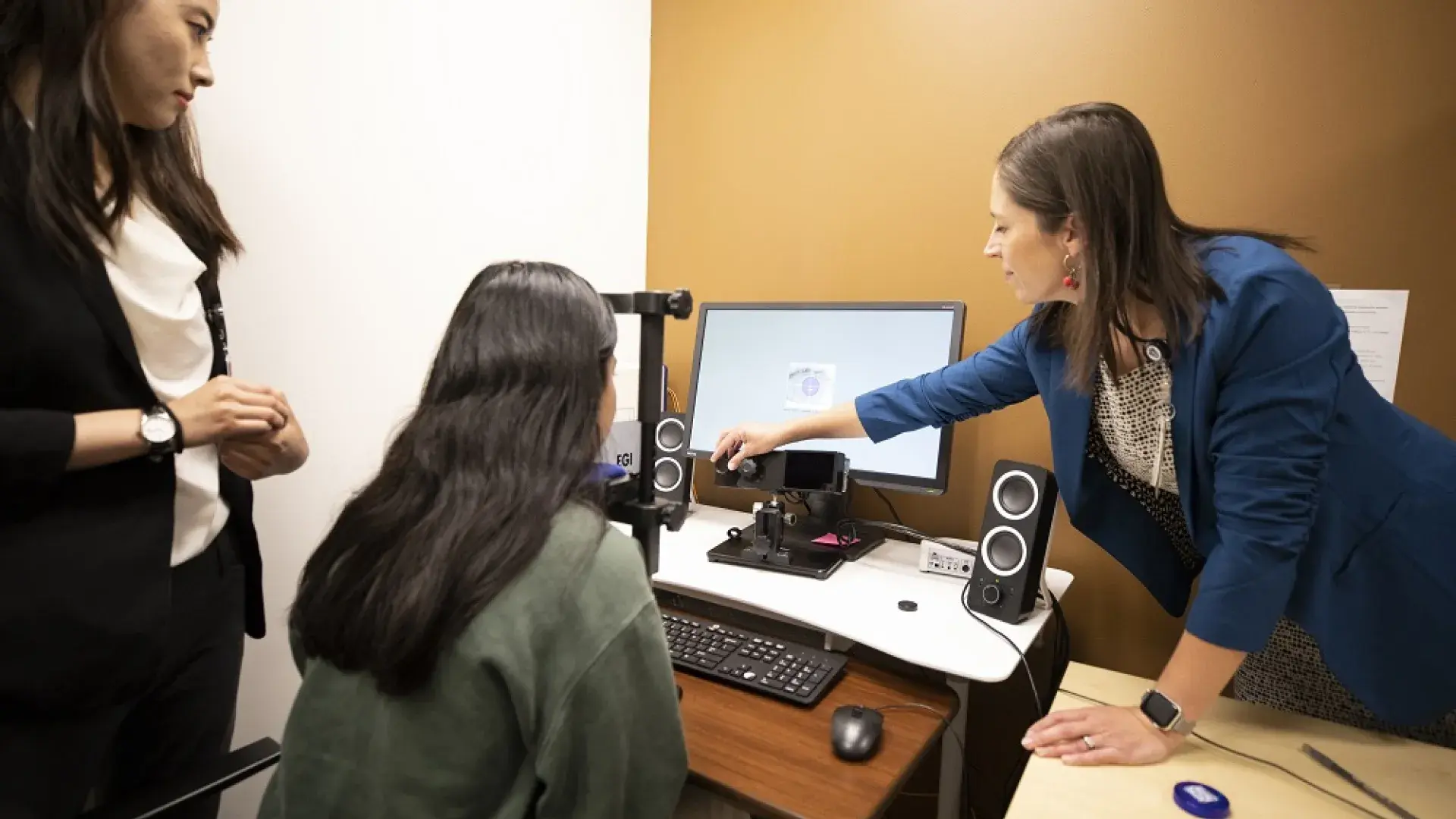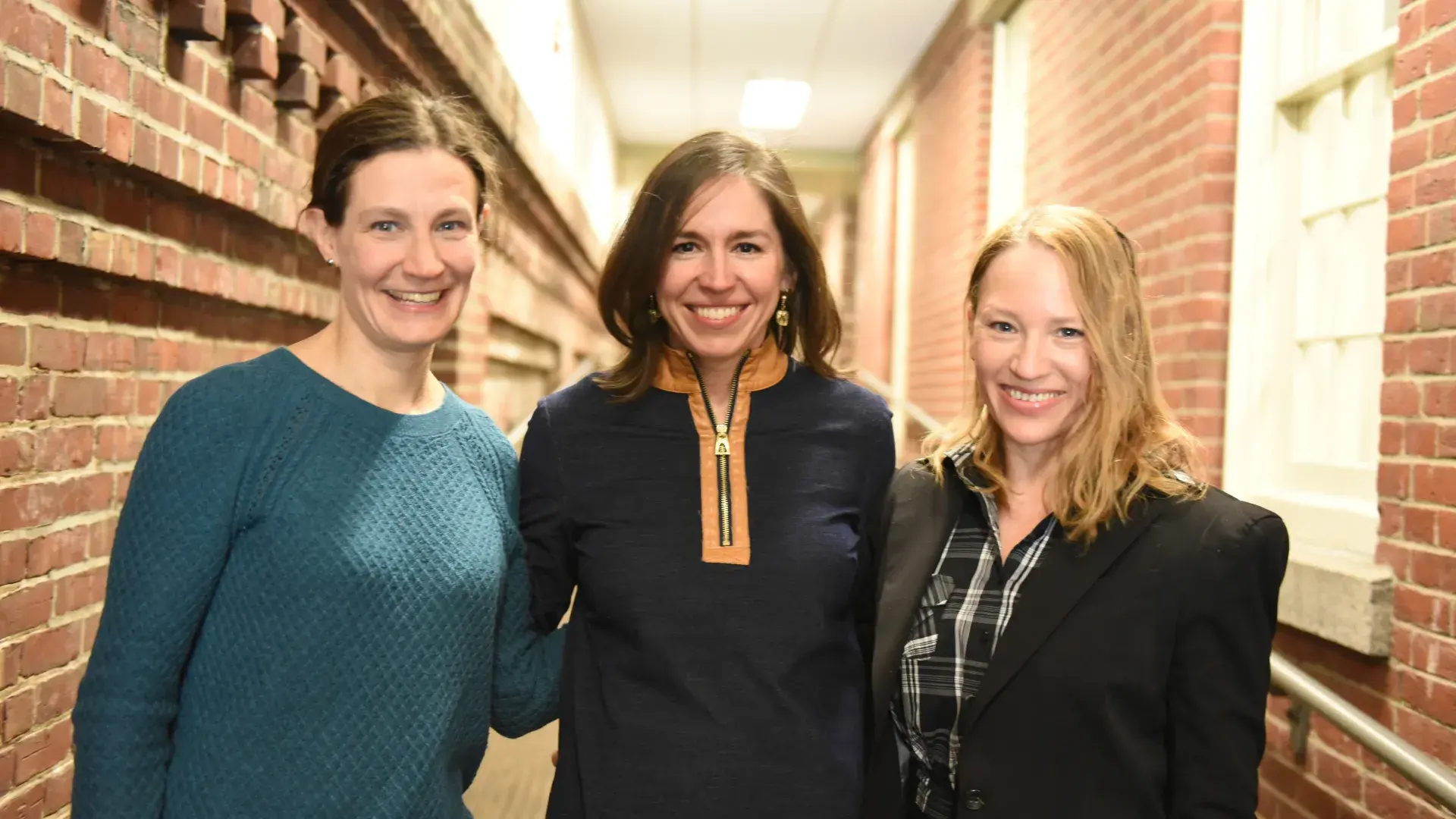
The Cognitive Neuroscience Group (CNG) at the MGH Institute of Health Professions is a collaborative lab designed to examine the relationship between learning, language ability, and cognitive factors. But this kind of group collaboration didn’t really exist before the CNG came together in 2016. the IHP but instead was created by the three researchers who make up the CNG.
“We are mentoring students by integrating them into our rigorous research,” shared Yael Arbel, PhD, CCC-SLP. “What we're building is a community where we offer our students guidance, but we also collaborate as mentors. This was our vision and we built it from scratch.”
Led by Arbel, Lauryn Zipse, PhD, CCC-SLP, and Sofia Vallila Rohter, PhD, CCC-SLP as Principal Investigators, the group allows for symbiotic mentorship between students and researchers. Since its inception, over 80 students have worked within the CNG.
“A few years back, I tried to get a group going where students could come together and discuss research. While we did develop a small group, we didn’t have a community,” said Zipse. “With the CNG, we came together to pool resources, of course, but really to pool students and ideas to facilitate discussions around research.”
With each researcher targeting a different area – Zipse specializes in adult neurogenic communication disorders, Arbel focuses on typical and atypical learning and language development in children, while Vallila Rohter’s specialty is aphasia and implementation – the trio found a collective interest in their cumulative areas of expertise. While their work sometimes overlaps, it’s very different at its core. Each PI contributes her own experiences, methodologies, and literature to the group, benefiting the other PIs – and the students involved.

